Permanent Residence Vietnam: Requirements and Process
For many foreigners who have lived and worked in the country for years, obtaining permanent residence Vietnam status is a crucial step toward long-term stability. This legal status not only grants the right to reside permanently but also comes with various benefits, such as easier business operations, visa-free entry, and more integration into local life. So what are the requirements and procedures involved? Let’s explore everything you need to know about gaining permanent residency in Vietnam.
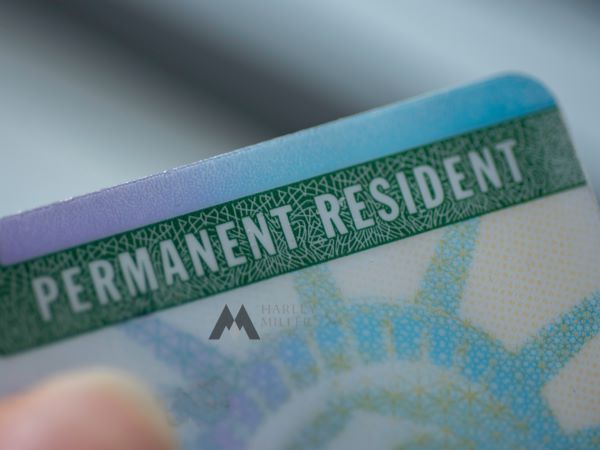
Want to stay in Vietnam long-term? Discover how to get permanent residence Vietnam status today
What is permanent residence in Vietnam?
In the context of immigration Vietnam, permanent residence is the highest level of legal residency a foreigner can obtain. This legal status lets a person live in Vietnam forever.
They do not need to renew visas or extend their stay. A Vietnam Permanent Resident Card (PR Card) confirms this status. This card is the main identity and travel document in the country.
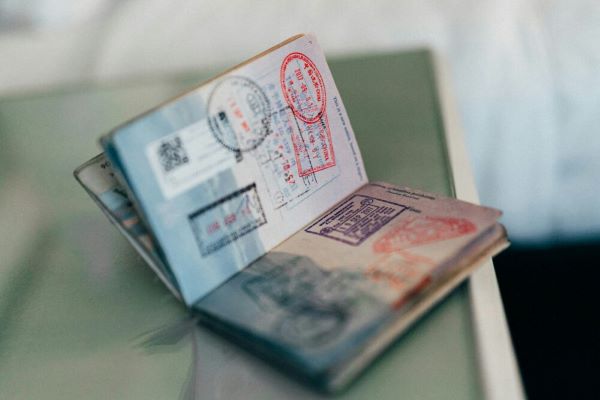
Want to live in Vietnam long-term? Discover how to get permanent residence
The key distinction lies in its comparison to a temporary residence card Vietnam (TRC). While a TRC allows for an extended stay (typically 1-5 years), it is temporary and requires renewal upon expiry. In contrast, permanent residence is, as the name suggests, permanent. They renew the PR card every decade, yet the fundamental residency status remains valid permanently.
According to Vietnamese law, this status confers significant legal rights. Holders of a Vietnam PR card are exempt from visa requirements for entering and exiting Vietnam. They can also have long-term jobs, buy property under certain rules and bring relatives to join them.
They can use specific social services too. This puts them on a similar level to Vietnamese citizens in many parts of daily life.
This privileged status is why obtaining permanent residence for foreigners in Vietnam is a highly sought-after goal.
Who is eligible for permanent residence in Vietnam?
The Vietnamese government has outlined specific categories of individuals who are eligible to apply for permanent residence. Access is not open to everyone. Usually, this applies to those who have shown a strong commitment to the country. This can be through family ties, important contributions, or long-term legal residency.
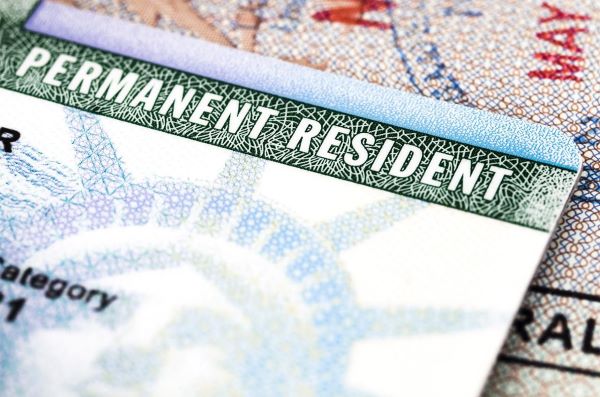
Not everyone qualifies permanent residence in Vietnam is for those with deep ties or long-term contributions
Based on Article 39 of the Law on Entry, Exit, Transit and Residence of Foreigners in Vietnam (Law No. 47/2014/QH13), the main categories of eligible applicants are:
- Foreigners who have made significant contributions or received awards from the Vietnamese Government or the President of Vietnam.
- Scientists and Experts: Foreigners who are skilled professionals, scientists or experts. A minister or a government agency sponsors them to live in Vietnam.
- Family-Based Applicants (Sponsored by a Vietnamese Citizen): Foreigners whom their parent, spouse or child sponsors. The sponsor must be a Vietnamese citizen with permanent residence in Vietnam. This is one of the most common pathways.
- Stateless Persons: Individuals who have resided consistently in Vietnam since 2000 or earlier.
The most relevant categories for the majority of applicants are those related to family ties and long-term residency. A Vietnamese citizen can consider a foreigner married to them for residency. They must have lived in Vietnam for at least three years. Similarly, children of Vietnamese citizens are also prime candidates for permanent residence for Vietnamese overseas looking to return.
Conditions for permanent residence in Vietnam
Beyond falling into an eligible category, applicants must satisfy a strict set of conditions for permanent residence in Vietnam. These rules ensure that permanent residents obey the law. They also check if residents are financially stable. Finally, they confirm that residents have a good reason to stay long-term.
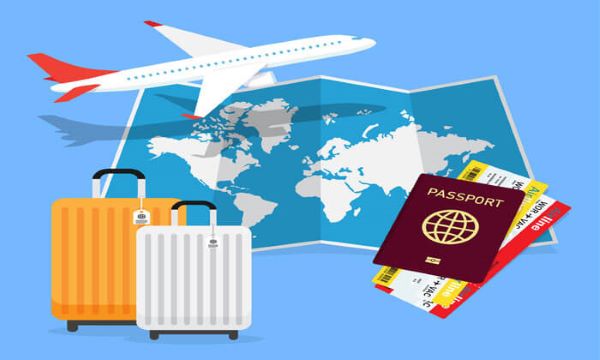
Permanent residence in Vietnam requires proof of income, legal stay, clean record and strong local ties
The general conditions applicable to most applicants include:
- Lawful Residence: The applicant must prove they have a legitimate place of residence in Vietnam. This can be a house they own, a long-term rental apartment with a lease, or a home guaranteed by a family member.
- Stable Income: Applicants must show that they have a steady income or financial resources. This is to support themselves and their dependents in Vietnam. This prevents them from becoming a burden on the state. Evidence can include employment contracts, bank statements, or proof of business income.
- Clean Criminal Record: The applicant must have no criminal record. They must not face any legal issues or national security concerns. A judicial record check is a mandatory part of the application.
- Continuous Legal Stay: The applicant must have been residing legally and without interruption in Vietnam for a specified period. For those applying based on marriage to a Vietnamese citizen, this period is typically at least three years.
Specific Conditions for Different Categories:
- For scientists and experts, there are general conditions. A minister or the head of a government agency must propose these conditions. This confirms their expertise and contribution to Vietnam’s development.
- For Investors: While not explicitly a separate category in the primary law, significant investors may fall under the “significant contributions” or “expert” categories if their investment is deemed a major contribution to the Vietnamese economy. In practice, this often involves substantial capital (e.g., contributions previously cited around VND 100 billion), creating jobs, and receiving a formal recommendation from a provincial People’s Committee. Note: Investment-based residency is a complex area and often requires professional legal consultation.
- For Family-Based Applicants (Spouse, Child or Parent of a Vietnamese Citizen): The primary condition is proving the family relationship through legalized documents (e.g., marriage or birth certificates) and demonstrating continuous residence in Vietnam for at least three years prior to applying.
Required documents for permanent residence in Vietnam
A successful application hinges on a complete and accurately prepared dossier. The list of documents required for permanent residence in Vietnam is extensive, and any omission can lead to significant delays or rejection. All foreign-issued documents must be translated into Vietnamese and and properly certified by consular authorities or legalized as required by Vietnamese law.
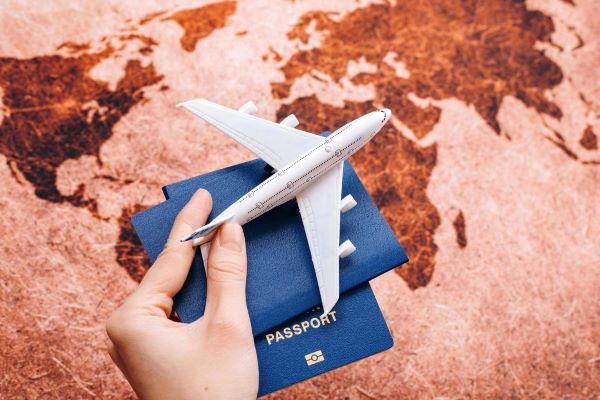
Missing documents can delay or derail your permanent residence Vietnam application prepare your dossier carefully
Here is a general checklist, though specific requirements may vary slightly by case:
- Application Form for Permanent Residence: This is the official form, currently Form NA12, which must be filled out accurately. It includes a photo and must be signed by the applicant and the sponsor (if applicable).
- Sponsor’s Guarantee Form: If applying through a family member, the sponsor (the Vietnamese citizen) must complete a guarantee form (e.g., Form NA11).
- Certified Copy of Passport: A valid passport with all pages, including the visa and entry/exit stamps that prove continuous residence.
- Proof of Legal Residence in Vietnam:
- Temporary Residence Card (TRC) or valid visas proving at least three years of continuous stay.
- Police registration of temporary residence.
- Proof of Entitlement:
- For Family Ties: A legalized copy of the Marriage Certificate (if applying as a spouse) or Birth Certificate (if applying as a child/parent).
- For Scientists/Experts: A formal written proposal from the sponsoring Vietnamese government body.
- For Notable Contributions: Copies of medals, certificates, or official decisions from the Vietnamese government.
- Judicial Record / Police Clearance Certificate: A certificate issued by the competent authority of the foreigner’s home country, and a separate one issued by the Vietnamese authorities in the province of residence, confirming a clean criminal record.
- Proof of a Lawful Place of Residence:
- A notarized long-term rental contract.
- Documents proving ownership of a house (if applicable).
- A document from the sponsor guaranteeing housing.
- Proof of Financial Stability:
- Bank statements showing sufficient funds.
- An employment contract with salary details.
- Business registration and tax records if self-employed.
Procedure for applying for permanent residence in Vietnam
The application for permanent residence in Vietnam is a formal, multi-step process that requires careful attention to detail. Here is a step-by-step breakdown of the procedure:
Step 1: Document Preparation
Gather all the required documents listed in the section above. This is the most critical phase. Ensure all foreign documents are translated into Vietnamese and have undergone consular certification. Double-check all forms for accuracy before signing.
Step 2: Dossier Submission
The applicant must submit the application dossier in person at the appropriate immigration authority. The submission location depends on the basis of your application:
- For applicants under categories 1 & 2 (notable contributions, scientists/experts): The application is submitted to the Immigration Department under the Ministry of Public Security.
- For applicants under categories 3 & 4 (family-based, stateless persons): The application is submitted to the Immigration Office of the provincial or municipal police department where the applicant resides.
Step 3: Dossier Review and Processing
Upon receiving a complete dossier, the immigration authority will issue a receipt. The file is then reviewed for completeness, lawfulness and admissibility. The provincial immigration office will forward the file to the Immigration Department (Ministry of Public Security) for the final decision. The entire review process involves multiple levels of verification.
Step 4: Notification of Decision
The standard processing time is approximately four months from the date a complete application is received. However, this period may be extended by up to two months if the case requires further investigation. The Immigration Department will notify the applicant (or their sponsor) of the decision in writing.
Step 5: Receiving the Permanent Resident Card
If the application is approved, the Immigration Department will inform the provincial immigration office. The applicant will be notified to visit the designated office to receive their Vietnam PR Card. The applicant must present themselves in person to receive the card within three months of the notification date.
>>> SHARE INFORMATION: How can I send an email for an urgent visa to Vietnam?
Benefits of permanent residence in Vietnam
Obtaining a Vietnam permanent resident card is a game-changer for long-term residents. The benefits extend far beyond simply not needing a visa.
- Indefinite Stay and Visa Exemption: The most significant benefit is the right to live in Vietnam indefinitely. You can enter and exit the country freely without applying for a visa.
- Work and Business Opportunities: Permanent residents can work or run a business without needing a work permit, although they must still comply with relevant labor and business laws.
- Property Ownership: Under Vietnamese law, foreigners married to Vietnamese citizens or with permanent residence may be able to own residential property (houses/apartments).
- Family Sponsorship and Reunification: Permanent residents have the right to sponsor their foreign spouse, children, and parents to come and live in Vietnam.
- Access to Social Services: In some cases, permanent residents may gain access to local education for their children and participate in social and health insurance schemes, similar to Vietnamese citizens.
- Long-Term Stability and Security: A PR card provides the ultimate peace of mind. It allows for long-term life planning from securing a mortgage to planning for retirement without the looming uncertainty of visa renewals.
Rights and obligations of permanent residents in Vietnam
With great benefits come clear responsibilities. A permanent resident enjoys many rights but must also adhere to specific obligations to maintain their status.
Rights of a Permanent Resident:
- To reside, travel and work indefinitely in Vietnam.
- To be protected by Vietnamese law.
- To sponsor eligible family members for residency.
- To own property as permitted by law.
- To request the issuance or renewal of a Permanent Resident Card.
Obligations of a Permanent Resident:
- Comply with Vietnamese Laws: Adhere to all laws and regulations, including tax obligations and social security contributions if employed.
- Report Changes: Report any changes to your permanent address or other personal information to the local police within the stipulated timeframe.
- Renew the PR Card: The PR Card must be renewed every 10 years. The renewal process is simpler than the initial application but must be done before the card expires.
- Declare Temporary Absence: If leaving Vietnam to reside temporarily in another country, you must declare this with the commune-level police where you reside. Failure to do so, especially for long periods, could risk the revocation of your status.
For more details, refer to the Vietnamese Law on Entry, Exit, Transit and Residence of Foreigners in Vietnam (official government portal).
Common questions about permanent residence in Vietnam (FAQ)
Here, Entry Vietnam Visa will answer some frequently asked questions about obtaining permanent residency in Vietnam.
1. How long does it take to get permanent residence in Vietnam?
Typically, the process takes 4 to 6 months from the date of submitting a complete and valid application. However, complex cases may take longer.
2. How do I renew my Vietnam PR Card?
You must apply for renewal at the provincial immigration office at least three months before your current card expires. The process requires an application form, your current PR card and a copy of your passport. Renewal is granted every 10 years.
3. What should I do if I lose my PR Card?
You should quickly inform the local police about the loss. Then, ask for a new one at the Immigration Department or the immigration office in the province where it happened. The process is similar to a renewal but requires a report of loss.
4. Can I get permanent residence in Vietnam through investment?
Yes, but it’s not a straightforward “golden visa” program. Significant investment can qualify you under the “meritorious contribution” or “expert” categories, but it requires substantial capital and formal sponsorship from a Vietnamese authority. This pathway is complex and requires expert legal advice.
5. What is the main difference between temporary and permanent residence?
Authorities issue a Temporary Residence Card (TRC) for a set time, usually between 1 to 5 years. You must renew it when it expires. Permanent Residence is indefinite and only the physical card needs renewal every 10 years. It also grants more rights, such as not needing a work permit.
6. Can my family members also get permanent residence?
Yes. As a permanent resident, you can sponsor your spouse, children and parents for permanent residency. They must meet the necessary requirements.
Getting permanent residence in Vietnam can take time and a lot of paperwork. However, it is important for expatriates who want to stay long-term in the country.
Having a permanent residency card provides many personal benefits. It also creates a solid foundation for work, family life and future goals in this lively country. If you’re considering making Vietnam your long-term home, this is an opportunity worth exploring.
>> Refer to related news:

